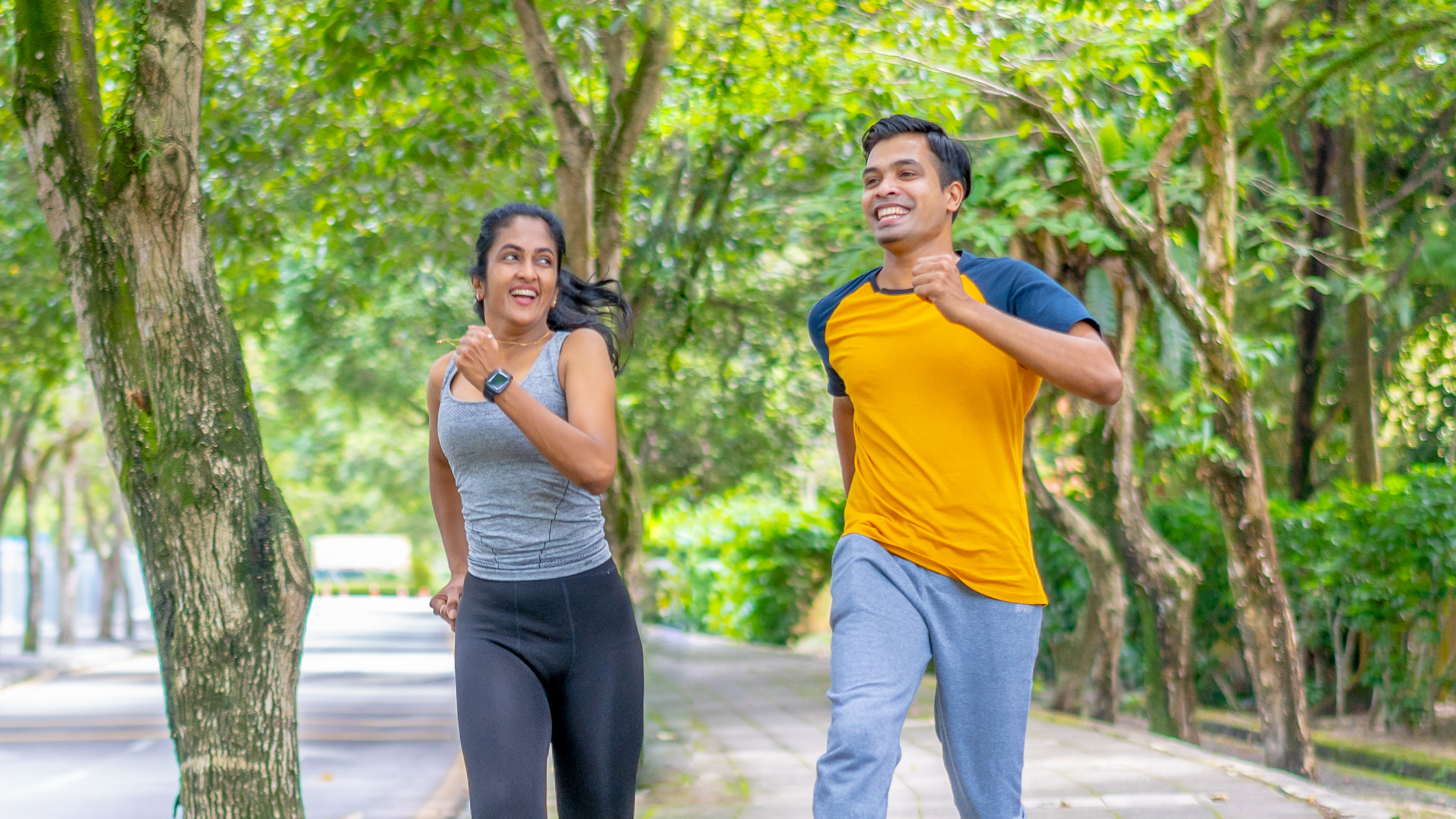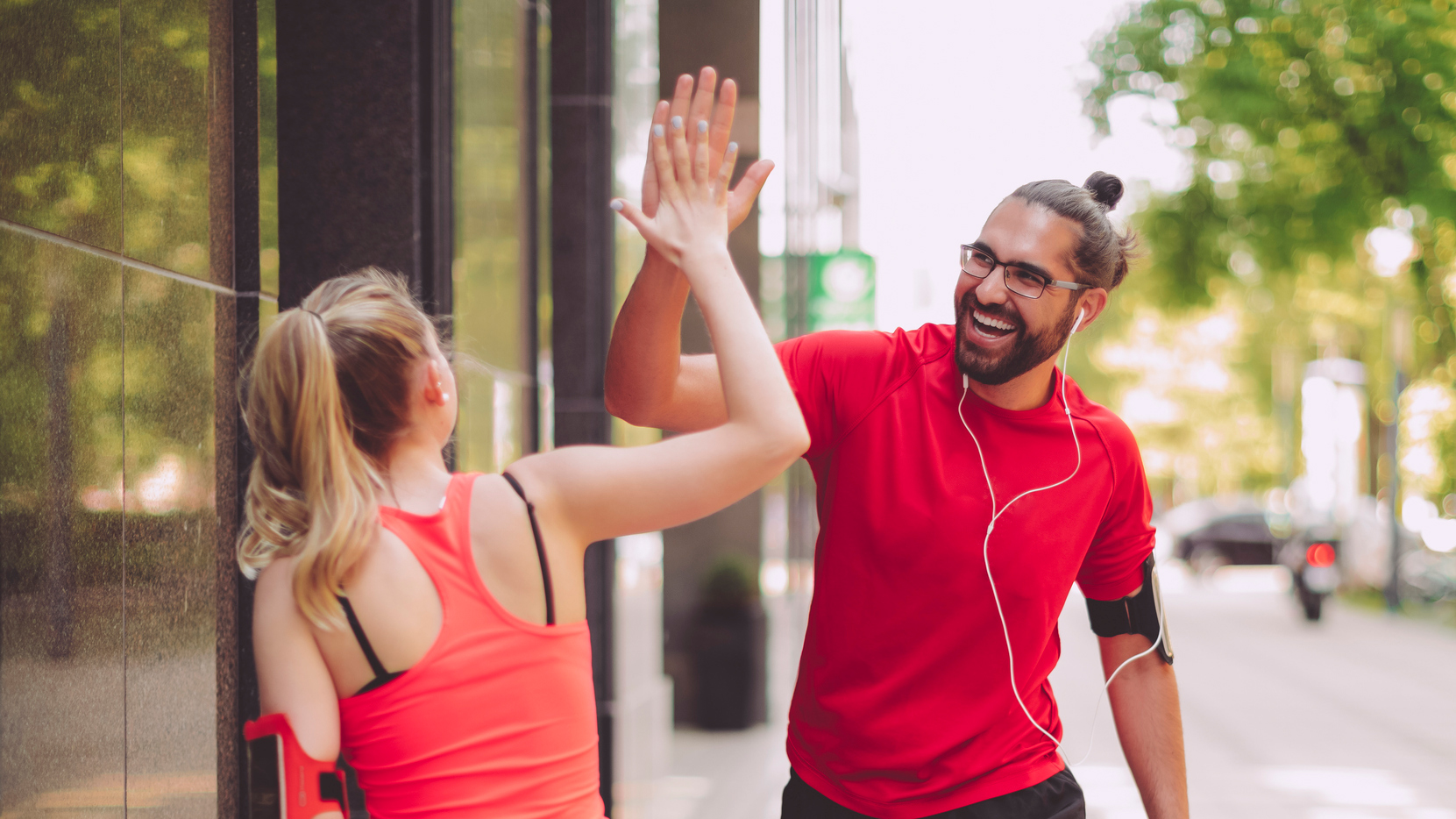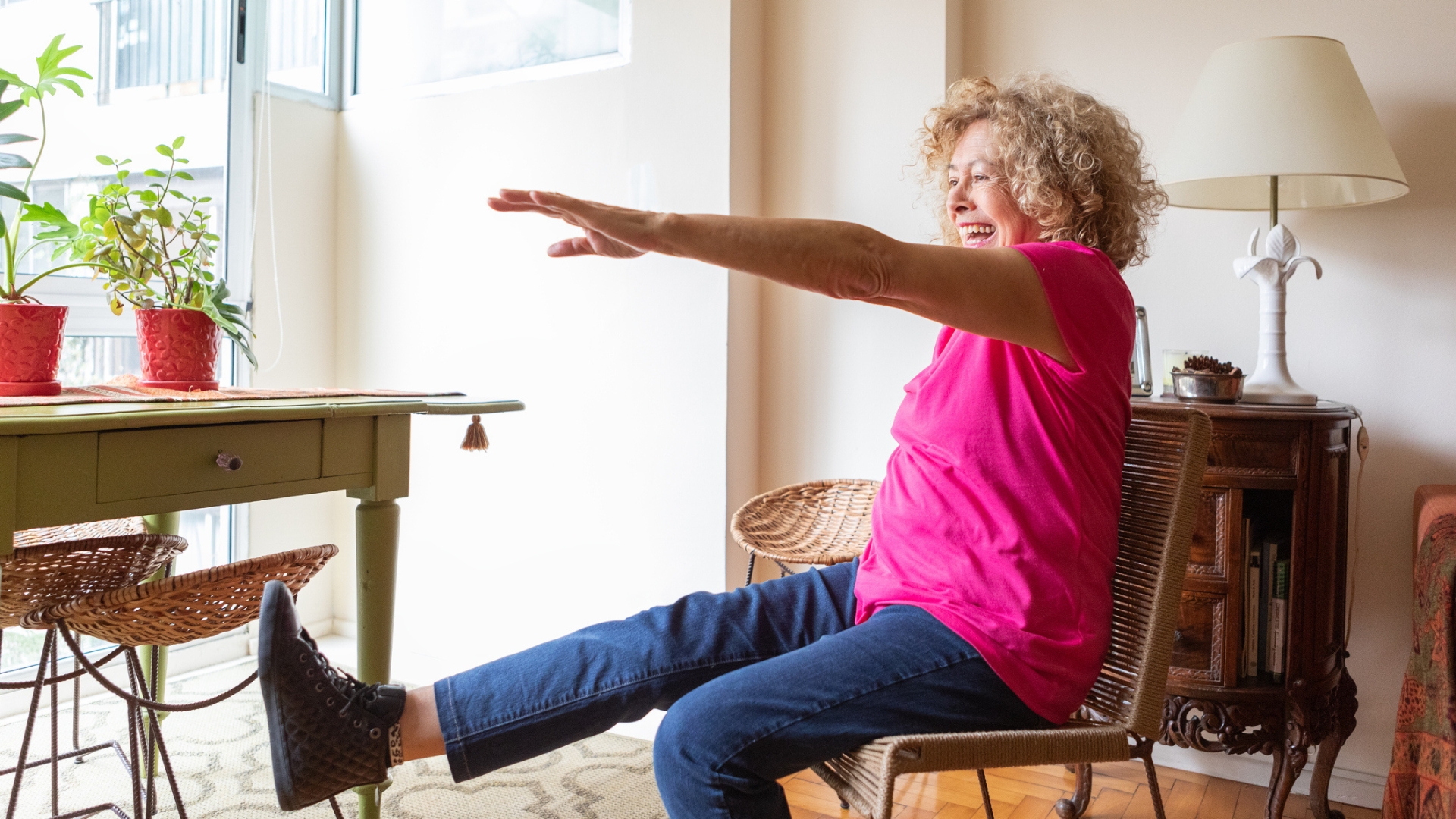Should you work out on your own, or with a partner? We look at the science
Will working out as a pair lift you both up, or slow you both down? We weigh the benefits and disadvantages


It can be tough starting a new fitness regime on your own, and it's easy to get demotivated when you're feeling down during a run or a demanding HIIT session. Now things are going back to normal and gyms are reopening as the COVID vaccine programme begins to roll across the world, we're sure many people are feeling this way as they get back into exercise.
Fortunately, there's a way to stick to your new regime and have some fun along the way: lace up your best workout shoes and buddy up with a friend to reap the rewards.
A study conducted by the European Society of Cardiology found exercising with a partner has a plethora of benefits. Examining patients who had previously had heart attacks as they attempted to lose weight, it was found people who exercised with a partner were twice as likely to lose a "significant amount" of weight within one year.
Whether it's your other half, a best friend or a personal trainer, an accountability partner is key. Having someone you can exercise with, and talk to, on a regular basis will help boost your confidence and ensure you stick to your regime. A 2016 study published in the journal Obesity found overweight people tend to lose more weight if they spend time with athletic friends.

Speaking to someone while you run has long been a test used by distance runners to check if you're exercising too hard: according to Runner's World, researchers at the University of Wisconsin-La Crosse had runners recite aloud the Pledge of Allegiance while on a treadmill. If they couldn't converse, they would be asked to slow down, so they had enough energy left to go the distance. Holding a conversation with a partner or friend while running can keep you on pace and occupy your brain, so time passes faster during your workout.
You can even see similar benefits by engaging the best online personal trainer and fitness apps if you don't have a willing partner around, using online group classes with set times to keep you accountable.
However, it's not all rosy: if you and your partner are at two different ability levels, the fitter partner tends to slow down rather than the slower partner speeding up. Walking with a partner might slow you down according to the UT Southwestern Medical Centre, as it was found "couples often decreased their speed when walking together. Speed further decreased if they were holding hands."
Get the Fit&Well Newsletter
Start your week with achievable workout ideas, health tips and wellbeing advice in your inbox.
But if you're exercising more often, and moving more as a result, you can make efforts to up the intensity. Besides, if you're enjoying the time spent exercising as a pair, who are we to tell you to go it alone? In our opinion, although your exercise may be less intense, the benefits of working out with a partner outweigh the disadvantages.
Matt Evans is an experienced health and fitness journalist and is currently Fitness and Wellbeing Editor at TechRadar, covering all things exercise and nutrition on Fit&Well's tech-focused sister site. Matt originally discovered exercise through martial arts: he holds a black belt in Karate and remains a keen runner, gym-goer, and infrequent yogi. His top fitness tip? Stretch.
-
 I have bunions, but I can't feel them with these affordable Skechers walking shoes—now 22% off at Zappos
I have bunions, but I can't feel them with these affordable Skechers walking shoes—now 22% off at ZapposDeal A generous toe box makes the Skechers Max Cushioning Arch Fit Areena perfect for wide feet
By Lou Mudge
-
 Can't do a sit-up? A trainer says you should do these chair-based core exercises instead
Can't do a sit-up? A trainer says you should do these chair-based core exercises insteadNo sit-ups or planks
By Jennifer Rizzuto